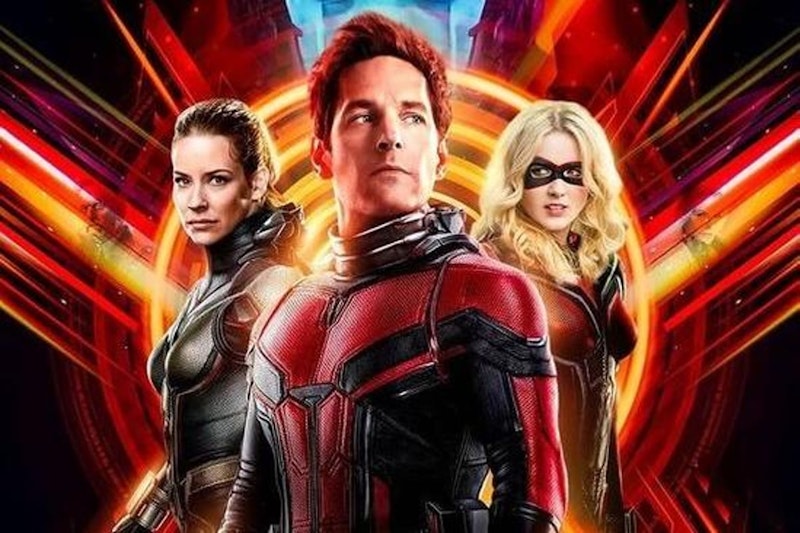Paul Rudd’s Ant-Man hasn’t been the biggest box office draw in the Marvel Cinematic Universe. Nor are his adventures the most pivotal to the narrative or most impressive. But that’s the character’s appeal.
Ant-Man’s powers are underwhelming; he can shrink and… talk to ants. The movies lean into those unimpressive abilities. Scott Lang, divorced ex-con and smalltime thief, doesn’t muscle up and defeat his enemies with a blast of cosmic boom. Instead, his story is about getting so-so powers and making do. The visual effects are a cornucopia of goofy size-gags—giant Thomas the Tank Engines sliding across the lawn, buildings shrunk to briefcase size, Scott stuck at middle-school height. The best battle sequence in the films is a fight between The Wasp/Hope Van Dyne (Evangeline Lily) and an antagonist named Ava Starr (Hannah John-Kamen) who can turn incorporeal. In the fight, Hope shrinks out of the way so Ava can’t hit her; Ava turns intangible so Hope’s blows go right through. Rather than a big display of might and force and property destruction, their exciting set piece is a small ballet of slapstick failure and incapacity—a portrait of super disempowerment.
The new Ant-Man film, Quantomania, feels at first like a departure. Scott, Hope and their family travel to the quantum realm where Hope’s mother Janet (Michelle Pfeiffer) was trapped for decades. They encounter a lot of CGI creatures visually cribbed from Star Wars and fight against a Darth Vader-like despot, Kang the Conqueror (Jonathan Majors). It’s a sweeping adventure, far different than the small-scale family affairs about rescuing mom and avoiding parole violations that were the basis for the previous two Ant-Man films.
I think that the turn to fantasy epic was a mistake; Quantomania is a step backwards from 2018’s just-about-perfect Ant Man and the Wasp. But Scott still shrinks and enlarges, talks to ants, and manages to maintain a smaller-than-life tone. Even in an alien galaxy, Scott, his daughter Cassie (Kathryn Newton), Hope, and her dad Hank (Michael Douglas) bicker and care for each other as they always have. Scott’s a lot more wowed by the fact that Hank read his book than the sentient buildings or threat to the time stream. When Janet admits that she had relationships with other guys during her 30 years away from home, it’s not a melodramatic reveal. Hank shrugs, and on they go; their marriage survived decades apart and can survive a little infidelity. Love makes the big things small and the small things big. Which is why one of the best scenes here is Scott and Cassie grown to titanic size crushing the bad guys, embracing and then talking about how they want some citrus.
The multi-generational family dynamics keep Quantomania focused and small. It has the whimsy of Alice in Wonderland, The Wizard of Oz, Narnia, or The Hobbit, rather than the must-stuff-everything-in sprawl of Wakanda Forever, Endgame, or The Eternals. The story beats are predictable and not that compelling—do we really need yet another Triumph of the Will visual reference? But who cares when the film’s real fun is in the weird goopy character lamenting that his body lacks orifices, the surprising return of the lost ants, or the spaceship you drive by putting your hands into slime.
In one sequence, Scott’s bopping along a city street thinking about how weird his life is, but good. And suddenly he has a premonition of doom; is the world going to end? Will Kang destroy us all? And then the music picks up and he starts strolling again, signing autographs, taking pictures with dogs, looking forward to hanging out with his daughter. Some MCU films are filled with doom and gloom and claim to be about the fate of the universe and big issues. Ant-Man, though, knows superheroes are a little ridiculous, and that even when your rescuing an entire tiny realm, it’s best to keep a sense of proportion.

